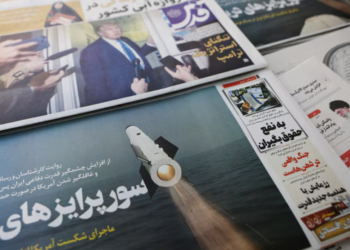ISLAMABAD: China has conveyed its concerns to Pakistan over the smooth sailing of the critically-important China-Pakistan Economic Corridor (CPEC) project within days after the recent unwarranted aggressive posturing of the Khyber Pakhtunkhwa (KP) chief minister on this particular issue.
Informed sources said that these concerns were conveyed to the Planning Commission through the Chinese Embassy. Some senior diplomats of the Chinese Embassy in Islamabad visited the Planning Commission to discuss the situation arising out of the recent controversies.
CPEC Project Director Major General (retd) Dr Zahir Shah, when approached by The News, confirmed that the Planning Commission, which is the lead government agency handling the project, has been approached a few days back by the Chinese to convey their concerns.
According to the general, the Chinese want supportive environment for the smooth implementation of the project. “They did express their concerns,” he said.
Sources said that the Chinese approached the Planning Commission a day or two after KP Chief Minister Pervaiz Khattak issued a public warning of taking extreme steps if the concerns of the province over the CPEC were not addressed.
“I warn if the federal government does not address the reservations of the KP about the (CPEC) project, then we will take an extreme step. And you (Centre) will see what we are going to do,” Khattak had told a news conference and said that the corridor would be allowed.
Continuing with his public aggression on an issue of national importance, Khattak was also quoted as saying that his government won’t allow the CPEC to pass through the province if the Centre denied the due share in its route to the latter.
“If KP doesn’t gain from the (CPEC) project, then nobody will be able to get anything from the whole project,” he warned without realising how seriously such statements from the chief executive of a province could affect the Chinese investment.
The major challenge for both Pakistan and China is to address the security issues connected with the CPEC for which the federal as well as the provincial governments have to play an important role.
The sources lamented that when a chief minister of a province starts hurling threats against the project’s smooth implementation, it is bound to shatter the trust of foreign investors.
The KP chief minister is of the view that the federal government was denying the province its due rights whether it was oil, gas, water or net hydel profit issue, and thus forcing the provincial government to go for agitation.
Later, the chief minister rallied other political parties of the province to further agitate the issue in public instead of discussing their reservations with the Centre behind closed doors to avoid making the project controversial and politicised.
The Planning Commission experts are of the view that the KP chief minister’s reservations are generally based on misunderstandings and do not hold any ground.
These sources said that the Centre expects from the provinces to get the maximum benefit from the CPEC by proposing a strong case of their industrial and economic zones.
While the KP chief minister insists that his province is getting nothing but only highways, the media reports suggest that the federal government has already identified as many as 27 sites in provinces, Islamabad Capital Territory (ICT) and Gilgit-Baltistan for setting up of Special Economic Zones (SEZs) under the CPEC. Eight of these sites have been identified in the KP.
The media reports say that these sites include marble and granite based industrial estate at Mansehra (80 acres, mining), industrial estate Nowshera (1,000 acres, manufacturing), expansion of Industrial Estate Hattar (424 acres, manufacturing), industrial estate at Chitral (80 acres, food processing) as well as Industrial Estate Ghazi (90 acres, manufacturing) and industrial estate Dera Ismail Khan (188 acres, manufacturing).
Industrial estate at border of Kohat and Karak and industrial and economic zone at Bannu (400 acre) in the KP have also been identified as sites for SEZs under the CPEC.
While Punjab is being blamed for getting the whole share, the report said that as against eight special economic zones in the KP, seven such zones have been identified in Punjab.
Courtesy: The News


















